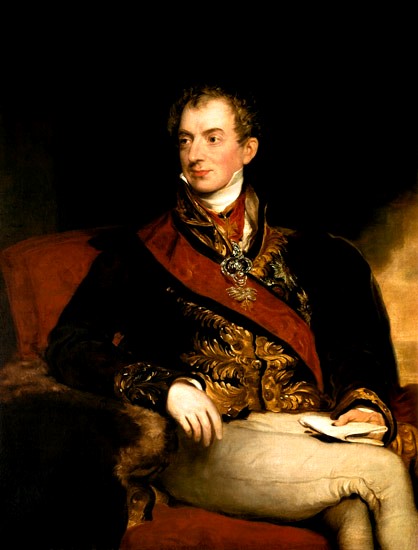
On 13th March 1848 Prince Klemens von Metternich
was forced to relinquish his post as Chancellor of the Austrian Empire and flee
to exile in England. One of the greatest statesmen of 19th Century
Europe had been toppled at last, after nearly 40 years of high office (Foreign
Minister from 1809 to 1821 before becoming Chancellor in addition to his former
role).
1848 is often termed the “Year of Revolutions”. Only a few
weeks previously, the French King Louis-Philippe had been chased from the
throne and replaced by Napoleon III. Now the spirit of revolution moved to
Vienna.
Seizing their chance, a large group of students marched on
the Hofburg imperial palace, to be met with gunfire at first but then
realization on the part of the Austrian royal family that change had to come.
A deal was struck whereby the Habsburgs clung to their
throne but Metternich was figuratively thrown to the wolves.
From the point of the view of the revolutionaries, this was
what they really wanted. Their demands were for liberty for the people and an
end to absolutism, and Metternich had been the main obstacle to achieving those
aims.
Metternich had been the right man for the job when the job
had been rebuilding Europe after the defeat of Napoleon I. He had been one of
the chief architects of the New Europe that was instituted at the 1814 Congress
of Vienna, at which he usually got his own way.
However, 30 years of relative stability were now coming to
an end, and Metternich was no able longer to pull all the strings.
He was also hated in his country for his arch-conservatism
and the secret police that he employed to keep dissenters at bay. He once
boasted that he kept an eye on everything and that nothing happened of which he
was unaware. He also claimed that he had never made a mistake in his whole
life.
But even with his network of spies and agents keeping him
posted, Metternich could not withstand the power of the people when it turned
against him. At the age of 74 he had to leave Austria and head for England,
where the political situation was more stable.
Metternich was eventually allowed to return to Austria, but
on condition that he did not re-enter the political scene. He died in 1859 at
the age of 86.
© John Welford
No comments:
Post a Comment